Louis La Roche: "It's become so easy to find samples these days - the art of recording has become a little lost"
Danny Turner quizzes Louis La Roche on his fourth album We’re Not So Different and its authentic disco-era world
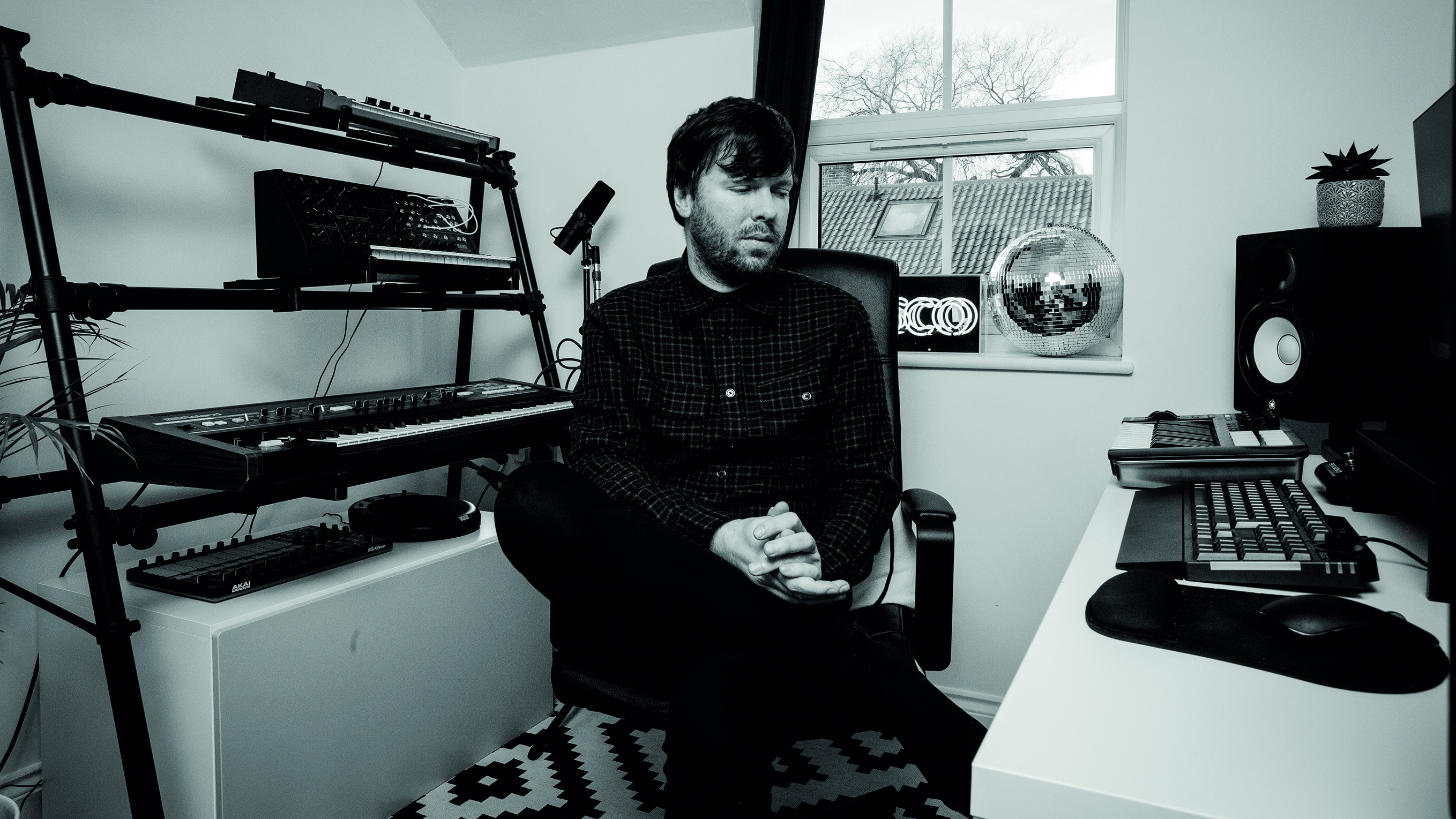
Starting his career in the late 2000s, Brett Ewels, aka Louis La Roche, always held a deep-rooted passion for disco music.
His soulful debut album To Rest is to Rust (2015) took a funkier direction, while the mellow, nocturnal parlance of its successor Sleepless Nights had a stab at French house. Meanwhile, Ewels’ third album in five years, Saturday Night Griever, ventured into indie pop and saw him collaborate with a different vocalist on every track.
These shifts in direction allowed the Norwich-based producer to reference his love for disco without being too obvious. However, the combined trauma of the Covid pandemic and a near-death experience in the family saw him yearning for the comfort of his teenage self and the genre’s halcyon days.
Conceptually tied to the 40th anniversary of the closure of Studio 54, on his latest release, We’re Not So Different, Ewel brings disco’s iconic sound back to life with unerring accuracy.
Why has it taken until your fourth album to pay proper homage to disco – a genre you admit is a major influence?
“It’s not that I moved away from disco, because I’ve always enjoyed listening to and making it, but I wanted to go further and create traditional pop music. I first started making music at around 17 years old. At the time, disco was my comfort zone genre, so it was fun to return to it with fresh ears using all the experience that I’ve gained over time. Disco’s in my blood, really.”
Presumably, the title of the album We’re Not So Different relates to accepting diversity?
Want all the hottest music and gear news, reviews, deals, features and more, direct to your inbox? Sign up here.
“I wrote the album at the same time as the 40-year anniversary of Studio 54’s closure and read an article all about it. I got really inspired by that whole time period and it’s a bit weird how we’ve come such a long way yet are stuck in the same rut. Crowds were so much more accepting and diverse in 1979.
“You had all different ethnicities, genders and sexualities, but now it’s almost like white people’s music. That’s fine – it is what it is, but disco was born out of discrimination and the clubs were people’s safe zone. The title’s basically saying that we’re all going through a lot of the same problems in the world right now, just as they were back then.”
How do you think disco music differentiates itself from house music, or the Nu House sound that you were a student of when you first started making records?
“I’m not really switched on to the charts or what’s being played in clubs a great deal because I feel that house and techno have merged and a lot of those soulful roots have been lost. I don’t really listen to much modern house, other than nostalgic-sounding new records, but house and disco does seem to remain strong in people’s minds. Now we’re going through the ’80s thing and everyone’s trying to sound like that.”
The ’80s revival seems to have been going on for decades and decades…
“Disco never really left did it? People like to say that it died, and it did in the mainstream, but it went back underground and rippled into other genres. As you mentioned, people are still very much influenced by the ’80s sound – it never really went away.
“I’m in my early 30s so didn’t live through that era, but I constantly heard ’70s and ’80s songs on the radio when I was growing up. For me, the year I love the most in music is 1983 because there was a crossover between post-disco and synths becoming affordable. Electronic music still had live instrumentation and hadn’t gone full-on digital at that point.”
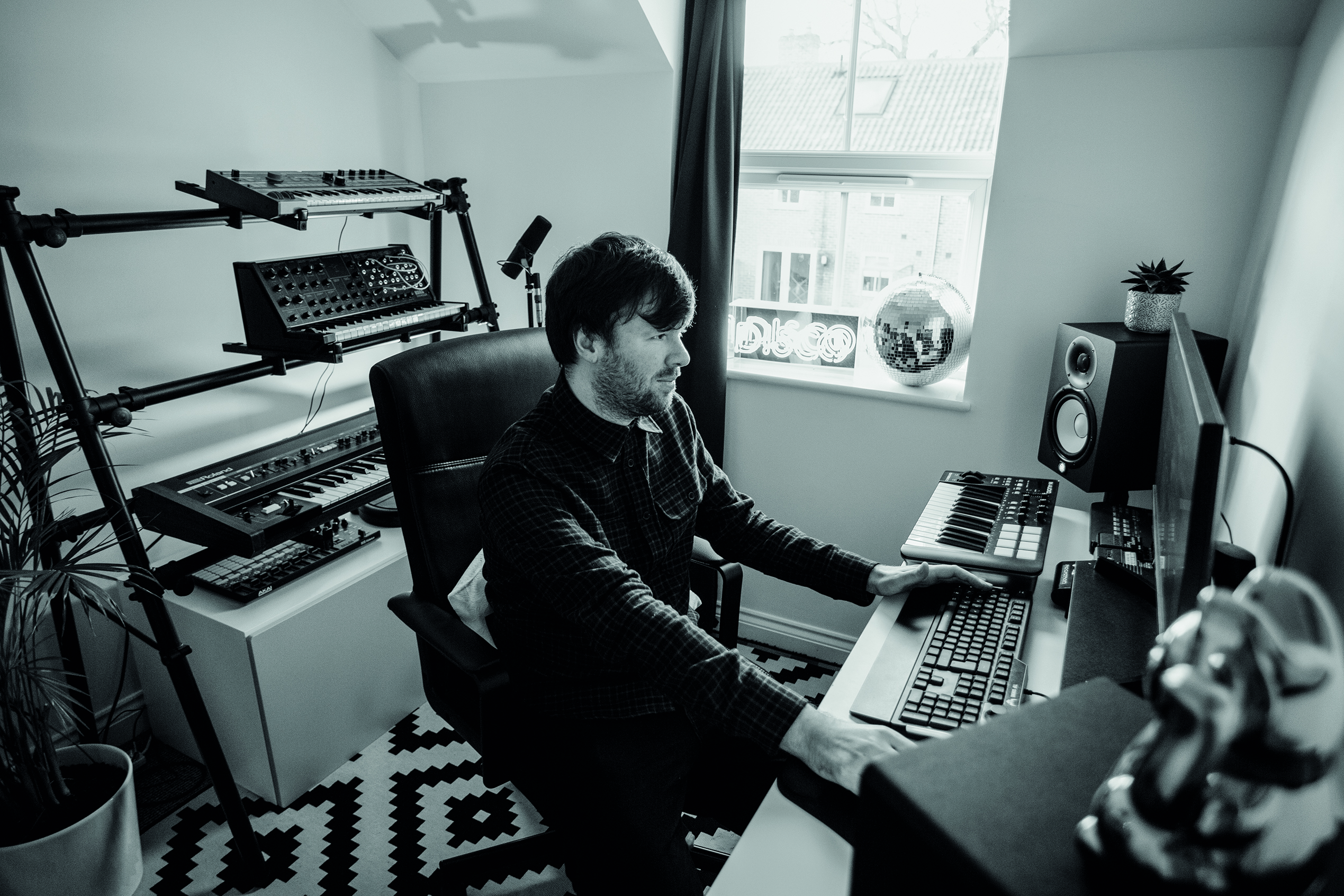
Were you listening to a lot of ’70s disco as a form of research or did you already have an ingrained feel for the tracks you wanted to produce?
“A bit of both. I was definitely making Spotify playlists of similar songs I wanted to make and taking notes, but I’ll typically do that with albums anyway. At the same time, a lot of that music is embedded in me. Sometimes I’ll make songs in the traditional way by picking up a bass, guitar or sitting at the keyboard, and other times I’ll be inspired by a drum groove and go wherever that leads me. I’ll often have a melody or lyric in my head that I’ll hum into my phone before trying to decode it and create a song.”
Is the process of thinking up tunes a contrived thing or do they literally just pop into your head whenever you least expect it?
“Sometimes it can happen at the weirdest of times. I’ll get into bed, hear a tune and have to sneak away from my girlfriend and record it in another room. Other times, a melody will pop into my head when I’m in the shower or at a shop. The voice notes on my phone are hilarious; they’re full of me humming melodies, lyrics or a phrase somebody said that could turn into a song title or lyric, and I try not to get in the way of that [laughs].”
Although the album was recorded during a melancholy time, you’ve combatted that with a very upbeat collection of songs?
“Most of the album was written in 2020 and a lot of things happened that influenced it. Obviously, the main one was the pandemic and I think that was the impetus for delving into the comfort of my childhood and writing music that was overly euphoric rather than depressing. I tend to work remotely anyway – I can’t just sit down and write a song with someone else, so that whole lockdown period wasn’t necessarily out of the ordinary for me.”
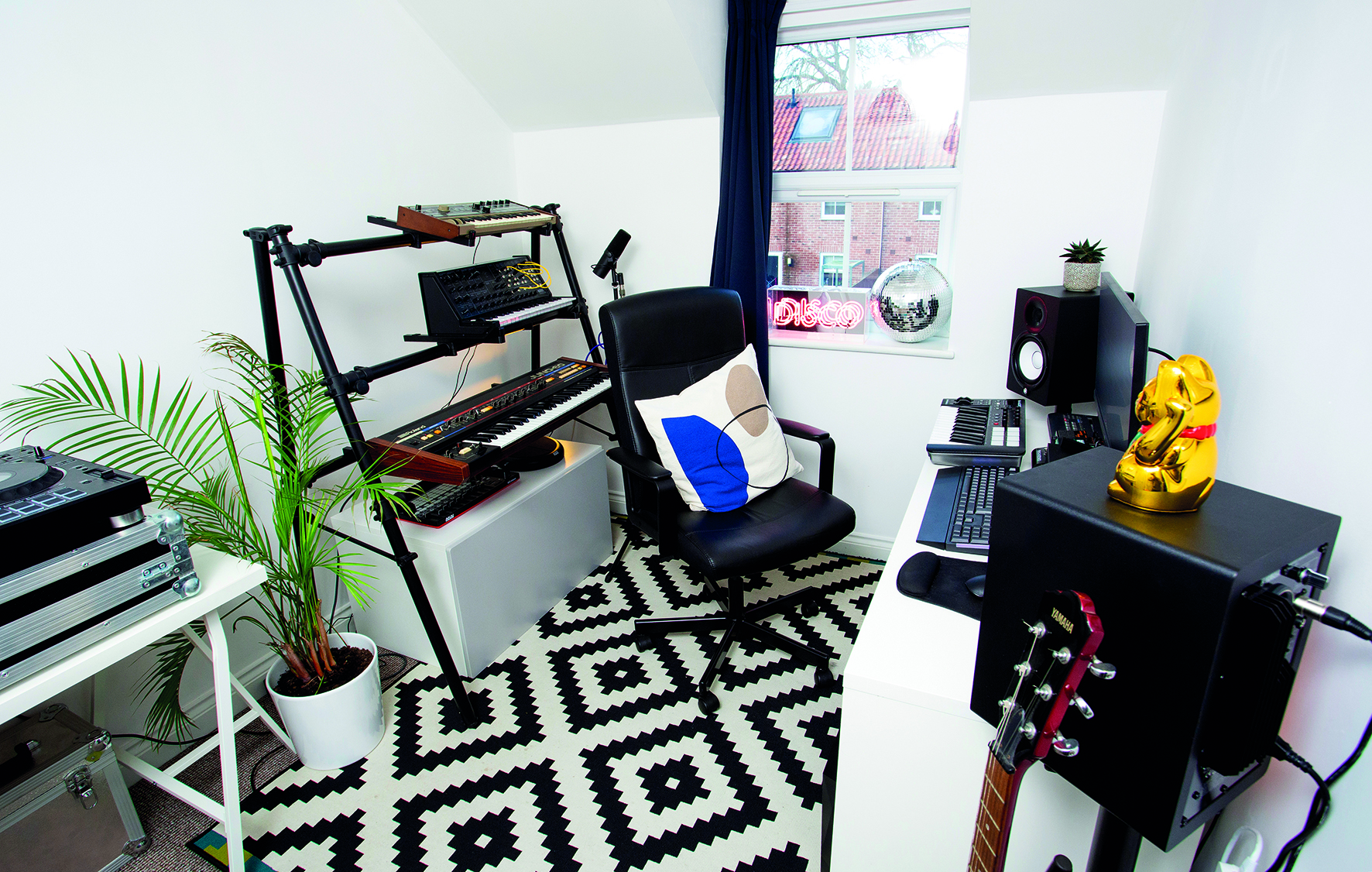
Prior to recording, did you create some sort of toolkit of disco-based sounds?
“I already had a library of go-to sounds that I liked, be it drum sounds I’ve collected, samples taken from my Juno-60 or guitar and bass, but a lot of it’s about knowing where to head once a song goes in a certain direction.
“For example, if a song is starting to sound like disco and I need live bass or lots of percussion, I’ll pick up a guitar or add some vocals depending on what the song needs at that moment. For songs that are more electronic, I’ll usually stick to using hardware or soft synths and work within those limitations.”
What VST libraries are you using?
“I like a lot of the Arturia stuff and u-he’s Diva and Repro 1 and 5. Whether using hardware or software, I like synths where you don’t have to delve into menus. I like dials and knobs but hate scrolling through menus to try and change something. It’s not that modern synths don’t have a place – I still use stuff like Serum, but a lot of the Arturia and u-he synths are based on emulations of old synths and are more hands-on.”
Vocal collaborations were a major feature of your last album Saturday Night Griever, but this time only two?
“On the last album I wanted to set myself the challenge of every song being a vocal collaboration, but this time I wanted them to be more personal to me rather than trying to get the best out of a vocalist. Even for the two vocals collaborations on the album it was my initial idea at the heart of it, and that’s usually how I work. I’ll record a vocal melody or some gibberish, send that to a vocalist and try to inspire them to take it to the next level before fleshing things out from there.”
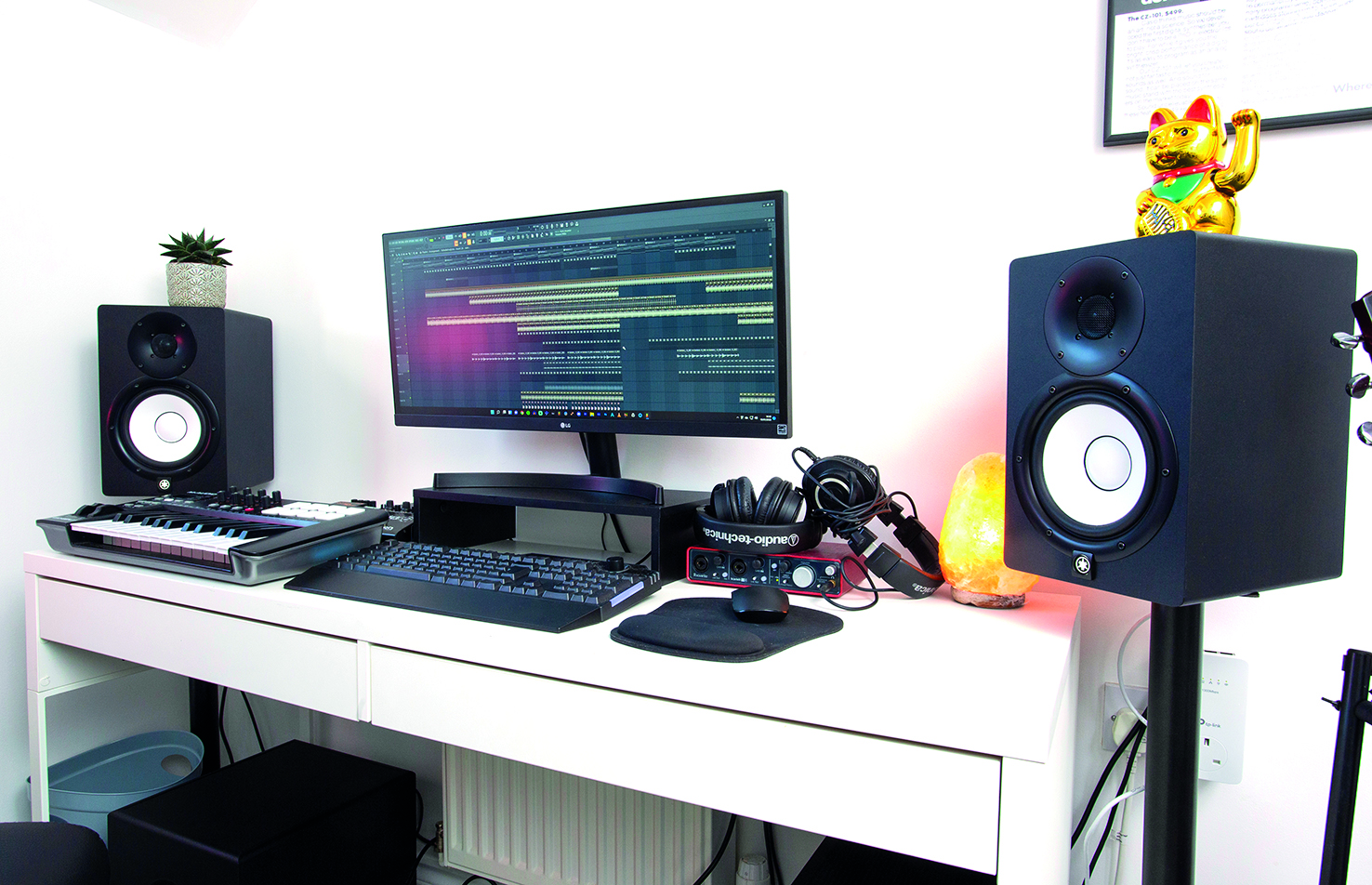
By contrast there are also a whole lot of vocal samples on the album…
“There’s lots of spoken word on the album and most of those samples came from old records or YouTube. There’s a song called A Certain Feeling, which came directly from what the sample actually said, and A Night Like This was similar – I just asked myself what the phrase would sound like as a musical painting. The track Gender Dysphoria is taken from a video of a transgender girl talking about what it feels like to be in that position and I was inspired to write a song around her words.”
Are you using hardware samplers or is it all in the box?
“I only really have one hardware sampler – an old Roland SMI-1. It’s really obscure and not many people use it, but I like how it’s so basic. I think it was released in 1993/94, so it has a lot of limitations, but I like the way that its internal preamps add a natural saturation and colour to the sound. If I do use it, it’s mainly to dirty up drum sounds. Other than that, I’ll use some plugins to make something new sound old.”
Are you referencing all of those iconic 909 sounds for your beat creation?
“No… 909s. I get my samples from a company called Samples from Mars who sample drum machines in as many ways as you can possibly imagine. Over the years I’ve collected a big library of drum machine sounds but still like to sample from old ’80s disco and funk records.
“I’ll chop them up to get kicks, snares and hi-hats taken from all different places and often pair them with modern drums. For example, the top part of a kick drum could be a sample from an old record but the bed of the kick uses a modern sound to give it more punch.”
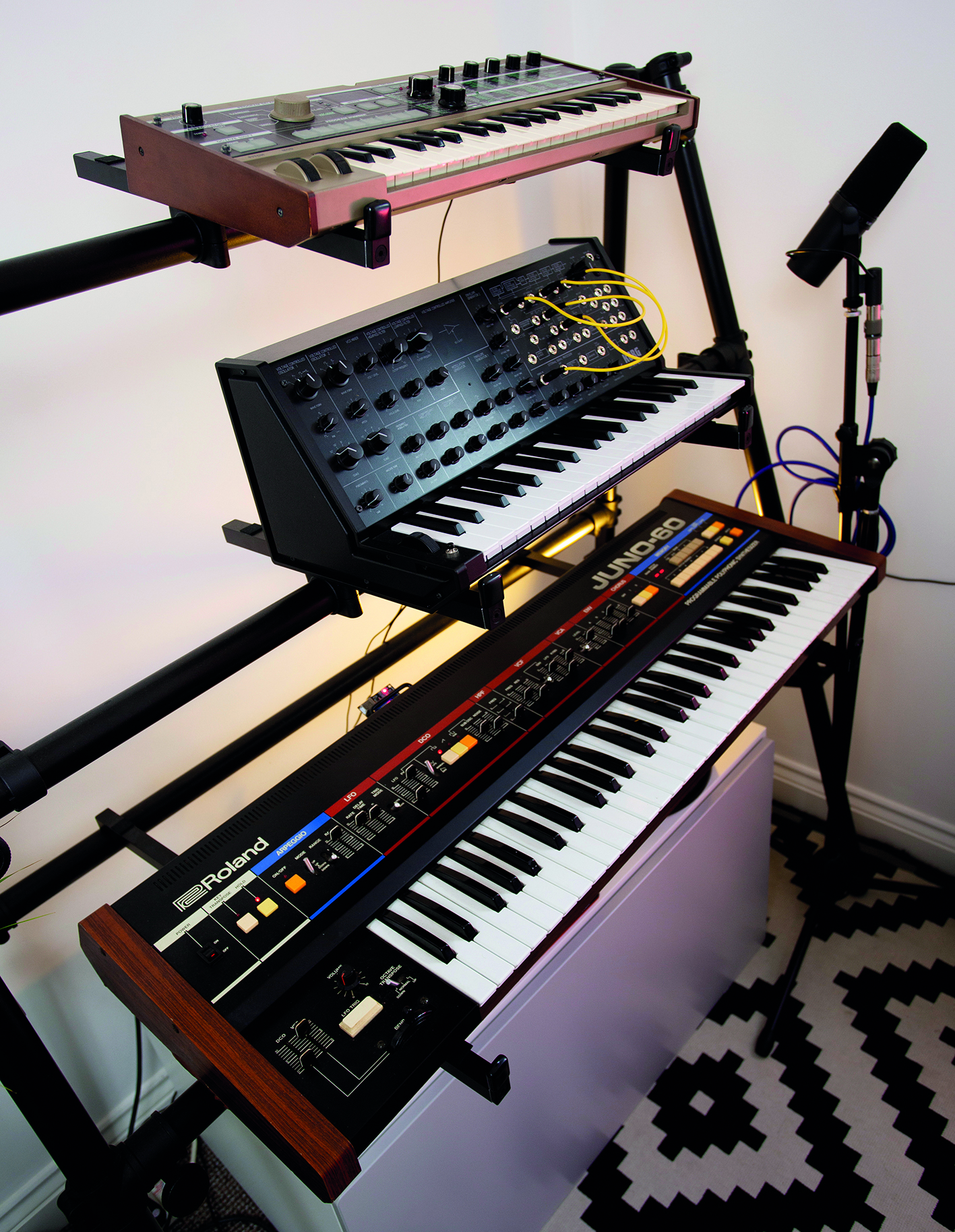
Traditionally, the kick and the clap are vital components of your typical house or disco track. Do you abide by certain principles for recording those percussive elements?
“You have to treat the kick/clap relationship very differently depending on whether a song is made for a club or the radio. For a club track, that connection between the bass, kick and drums is so important because that’s the part that’s most amplified in a club environment. If something’s for radio and more pop-inclined, it doesn’t matter so much.”
Early disco was very rhythmic and musical. How did you ensure the songs retain that feel while predominantly working in the box?
“If I’m going for the human feel I’ll try not to over-quantise because everything becomes robotic and mechanical. I like to add swing to pretty much everything and take things off-grid to give a human feel to the sound, especially as dance music is all about swing and making people want to dance.
“I consider myself a better keyboard player than guitar or bass, but I still like to play in those instruments. What I end up doing is playing a part for a couple of minutes and basically comping like you would with vocals before sticking everything together so it sounds like a flawless take.
“It’s going back to that idea of fooling the listener and making something sound like you picked up a guitar and played it when it’s actually been manipulated. It’s a weird balance because part of me wants to keep things rigid and on the grid, but I know that if I can play an instrument in first time round it’ll sound so much better. Sadly, if I physically can’t play an instrument well, what choice do I have?”
You’d advise that a badly played but corrected sound will at least add a bit of personality to people’s productions?
“Nowadays with platforms like Splice it’s become so easy to Google guitar and bass samples or drums and vocals, so the art of recording has become a little lost. It’s a bit lazy to just find something that someone else has made and throw it in your track, and although there’s nothing wrong with that per se, you’ve got less control as you’re limited to using something that’s already been recorded.
“I’m always looking to get to the sound that’s in my head, but if a sample has a reverb on it and you don’t want reverb, there’s nothing you can do.”
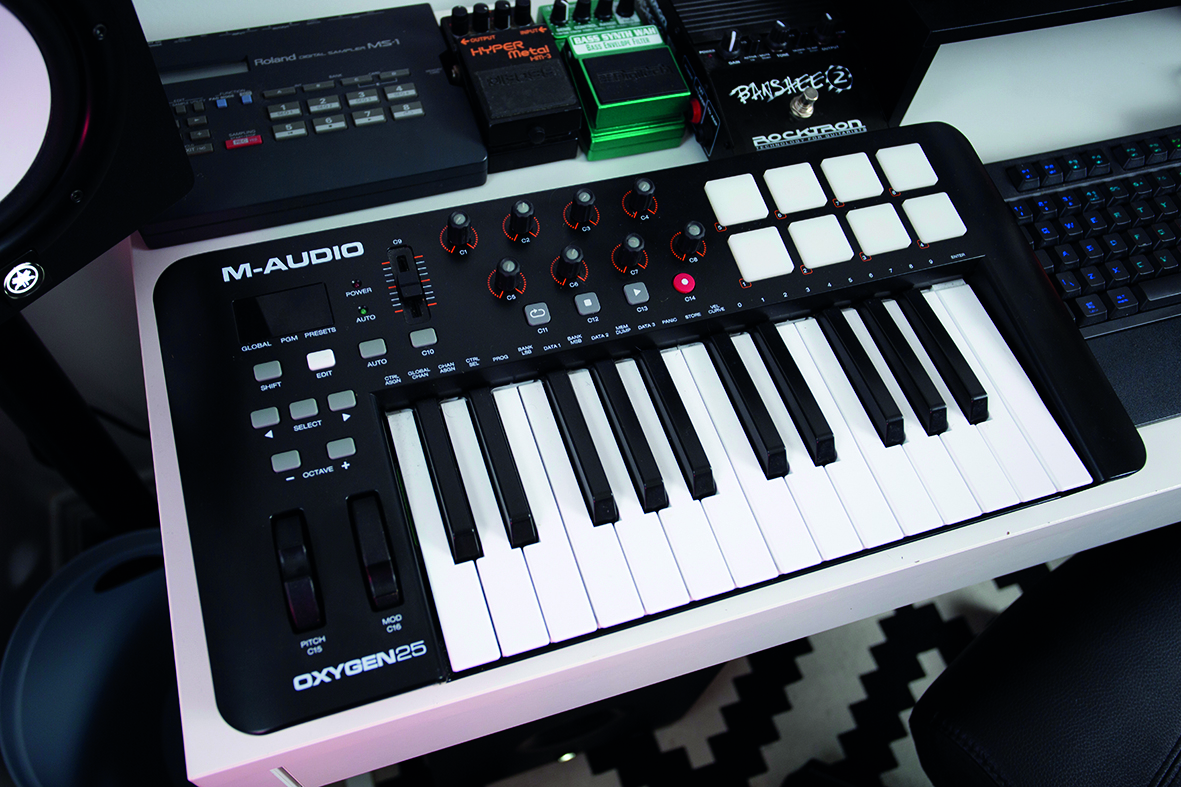
Do you also find that amplification of a real instrument is enough to add colour to a sound?
“With plugins like Guitar Rig and AmpliTube, you can easily get an amp or pedal sound so you don’t have to spend much money on hardware outboard anymore, but there’s just something about the raw physicality of playing something in. Even though it’s being channelled through digital, it will sound better than a fake-sounding, software-based VST. While those tools have come a long way, you can’t really input all the ghost notes and fret sounds.”
You’ve released four albums in six years now. Do you feel you’re going against an industry that’s increasingly oriented towards singles and EPs?
“For me, the album comes first and I figure out what the singles will be. I know that’s a very old-school way of doing things, but I hate it when you’ve heard all the singles by the time the album comes out.
“When the songs are all written at the same time, it’s easier for an album to have a concept. If you’re just putting out singles you can be influenced by things around you and every track starts sounding completely different. It’s good to have variety in your music, but I also feel it’s good for an album to be based on a particular palette of sounds.”
Have you been able to perform the new album live or are there plans for that?
“That’s always been on my to-do list but I’d be so out of my comfort zone. Part of that is the physical side of it – I’m just one guy and I can’t really play any instruments so I’d need to have a band, but it’s also down to logistics. My love has always been in the recording of music – I write a new song virtually every day.”
How did you find the experience of supporting Kylie Minogue in 2015?
“We played in huge arenas to between 10,000 and 15,000 people, so rocking up to play a DJ set there felt a million miles away from what I was used to, which was playing in a gritty club somewhere. But it was something I hadn’t done before so I just thought, ‘why not?’”
Did you get to meet Kylie?
“Yes I did and I also got to meet her tour agent who’d done tours for the likes of Jay-Z. I was probably freaking out more about him, but it was unusual to see her as ‘normal Kylie’ with her hair in a bun and wearing a hoody like she was at home. It was a very surreal experience, but a nice one!”
Louis La Roche's latest album We're Not So Different is out now on Ever After Records.


Future Music is the number one magazine for today's producers. Packed with technique and technology we'll help you make great new music. All-access artist interviews, in-depth gear reviews, essential production tutorials and much more. Every marvellous monthly edition features reliable reviews of the latest and greatest hardware and software technology and techniques, unparalleled advice, in-depth interviews, sensational free samples and so much more to improve the experience and outcome of your music-making.
